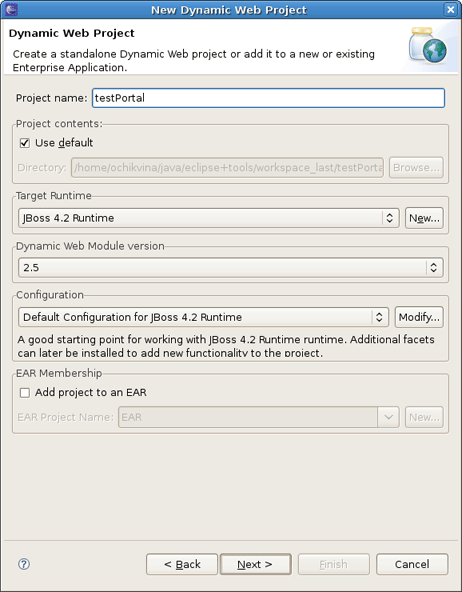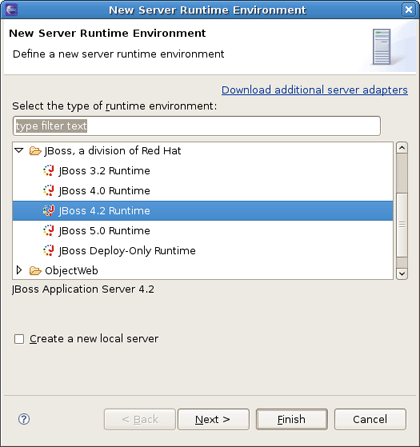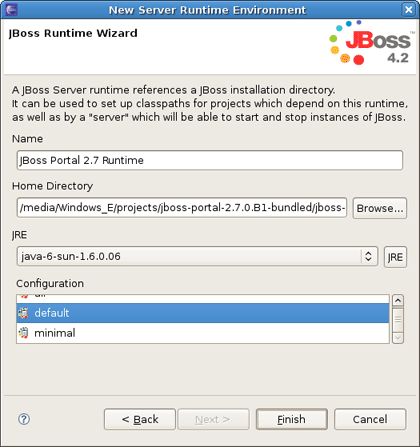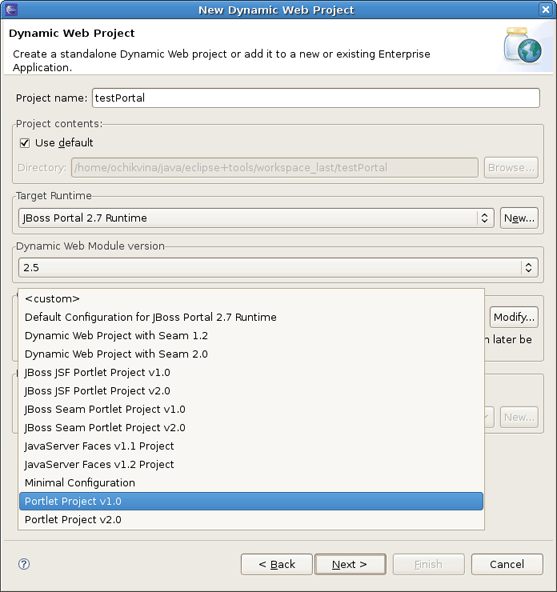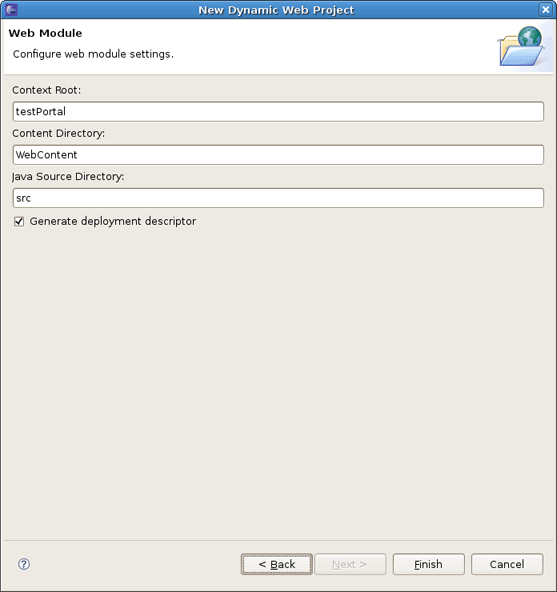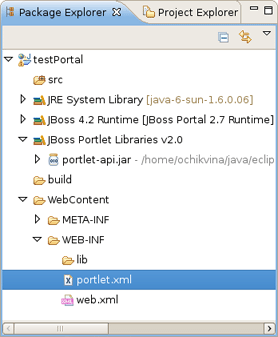To get started with JBoss Portal and JBoss Tools, you should first have a Web Project pointed to the JBoss Portal Runtime. Thus, this chapter is intended to give you a detail look at how you can get it.
To create a Dynamic Web Project, go to File > New > Dynamic Web Project if you are in the Web Perspective or File > New > Other > Web > Dynamic Web Project in any other Perspective. The first page of the New Dynamic Web Project wizard looks as follows.
Fill in the name of your project. Next, click on the New... button in the Target Runtime section to specify a new Target Runtime. Click Jboss 4.2 Runtime and press Next.
On the next page you should give a name to the runtime. Let's call it JBoss Portal 2.7 Runtime, and then point it to the location of your JBoss AS + Portal installation.
Note:
The JBoss Tools Portlet feature has been tested using 2.6.5 and 2.7.0.ALPHA versions of JBoss Portal. Remember, if you want to use Portlet version 2.0 (JSR-268), you have to choose JBoss Portal 2.7.
Click on Finish. It returns you to the New Dynamic Web Project wizard where it's also necessary to set the project Configuration. JBoss Tools (starting from 3.0.0.Alpha1) support the JSR-168 Portlet Specification (Portlet 1.0), JSR-286 Portlet Specification (Portlet 2.0). Thus you can choose Portlet Project v1.0 or Portlet Project v2.0.
The last wizard page is for configuring web modules. Here all values are set, so you can leave everything as it is.
Press Finish.
That's it! Our base project is done.
